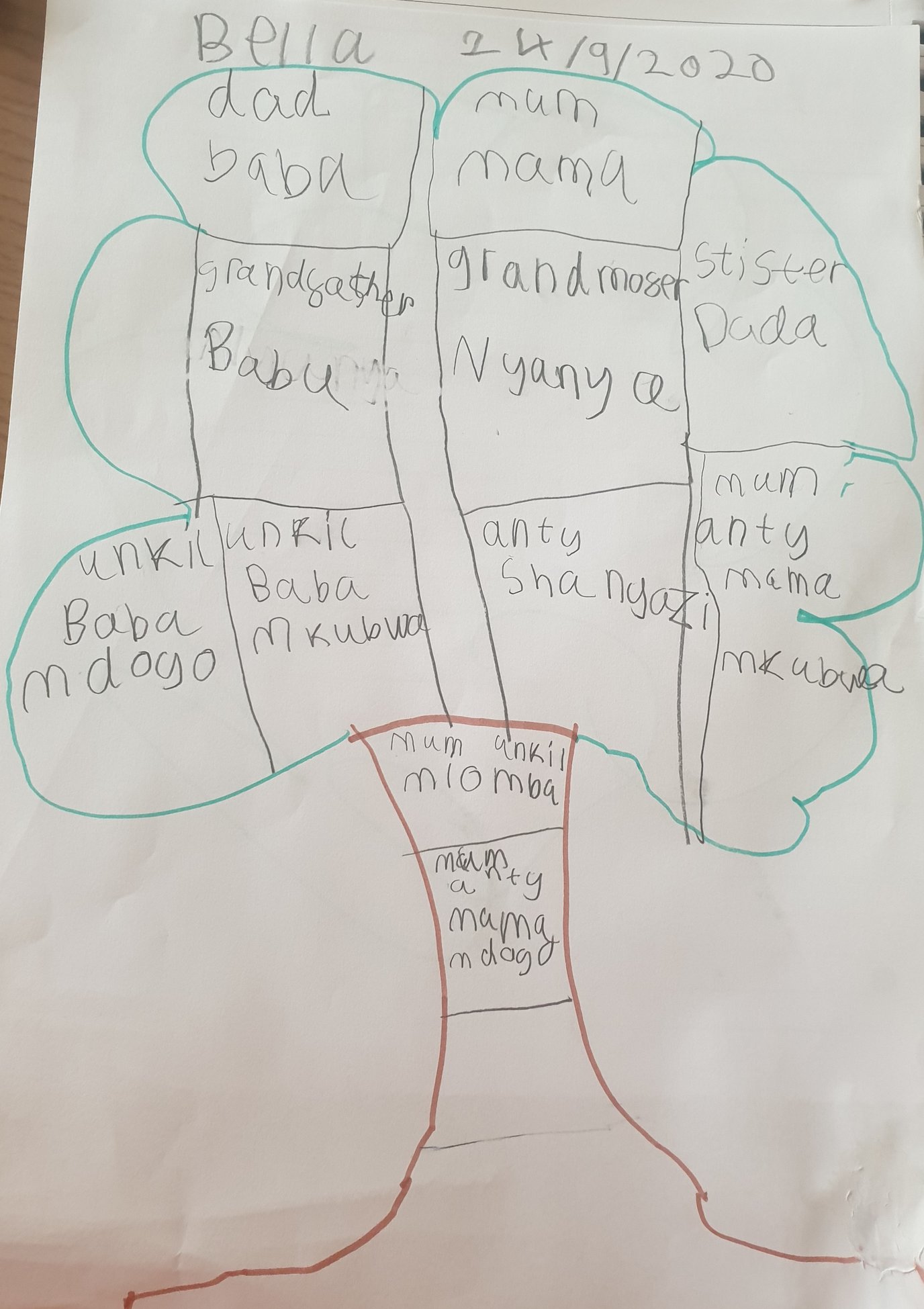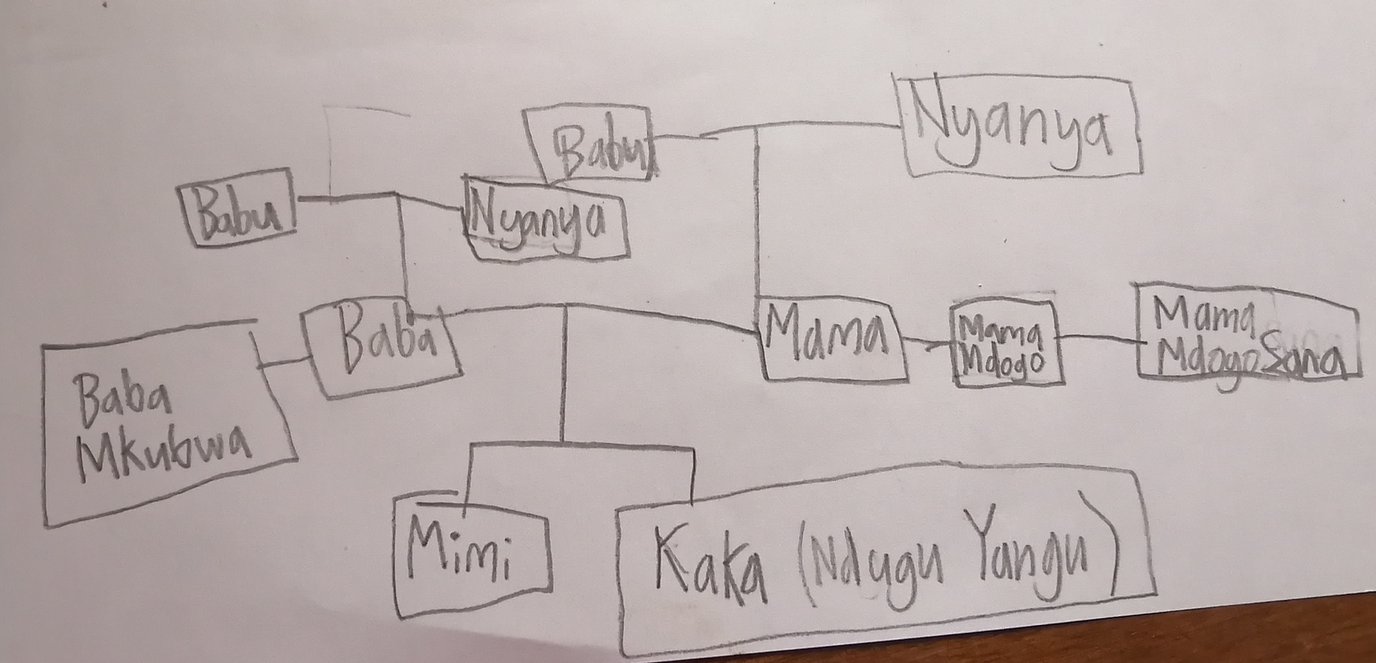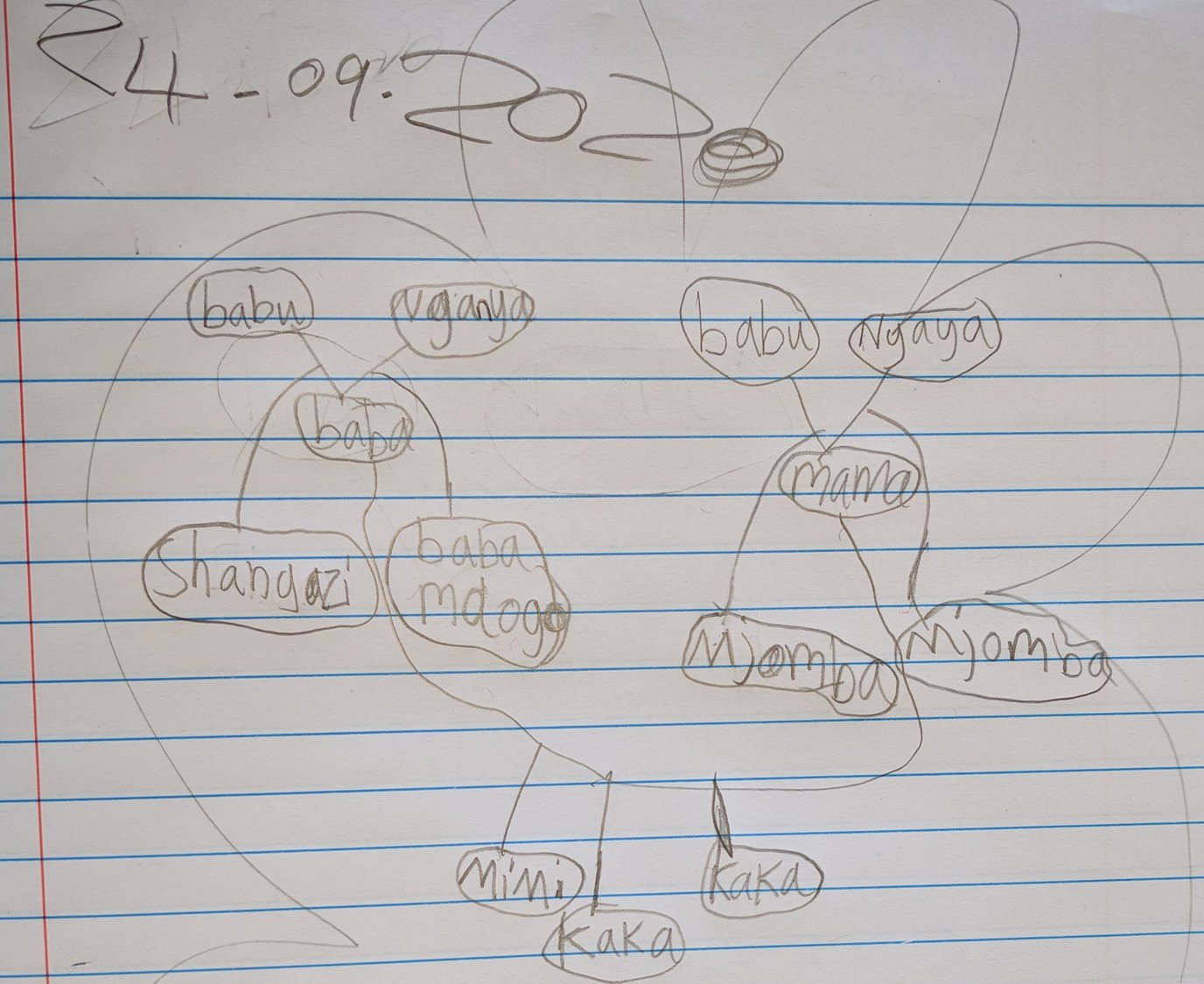Kiswahili

6th November 2020
Kiswahili is one of the most widely spoken languages native to Africa. The children are progressively learning how to speak and write. Besides introducing themselves in Kiswahili, they can count some numbers, they know the days of the week, they know the names given to family relations, they can greet using different vocabulary, listen to reading comprehension and confidently answer questions.
Year 2 children have learned how to say the days of the week in Kiswahili.
Also, they have learned how to count the numbers 1 to 10.
Listen to Elsie introduce herself...
Family Tree (Mti wa Familia)
Year 3 have learned the names for the members of their family and drew a family tree. Unlike in English where “aunt” is used to refer to either your father’s sister or mother’s sister, in Kiswahili, a different vocabulary is used and this distinguishes whose sister one is talking about. One’s father’s sister is “shangazi” whilst mother’s sister is either “mama mkubwa” if she’s older or “mama mdogo” is she’s younger than one’s mother. The same applies to one’s uncle! Look at some of the family trees the Year 3 children drew.



Year 4 and Year 6 children learned the different vocabulary used in greetings.







